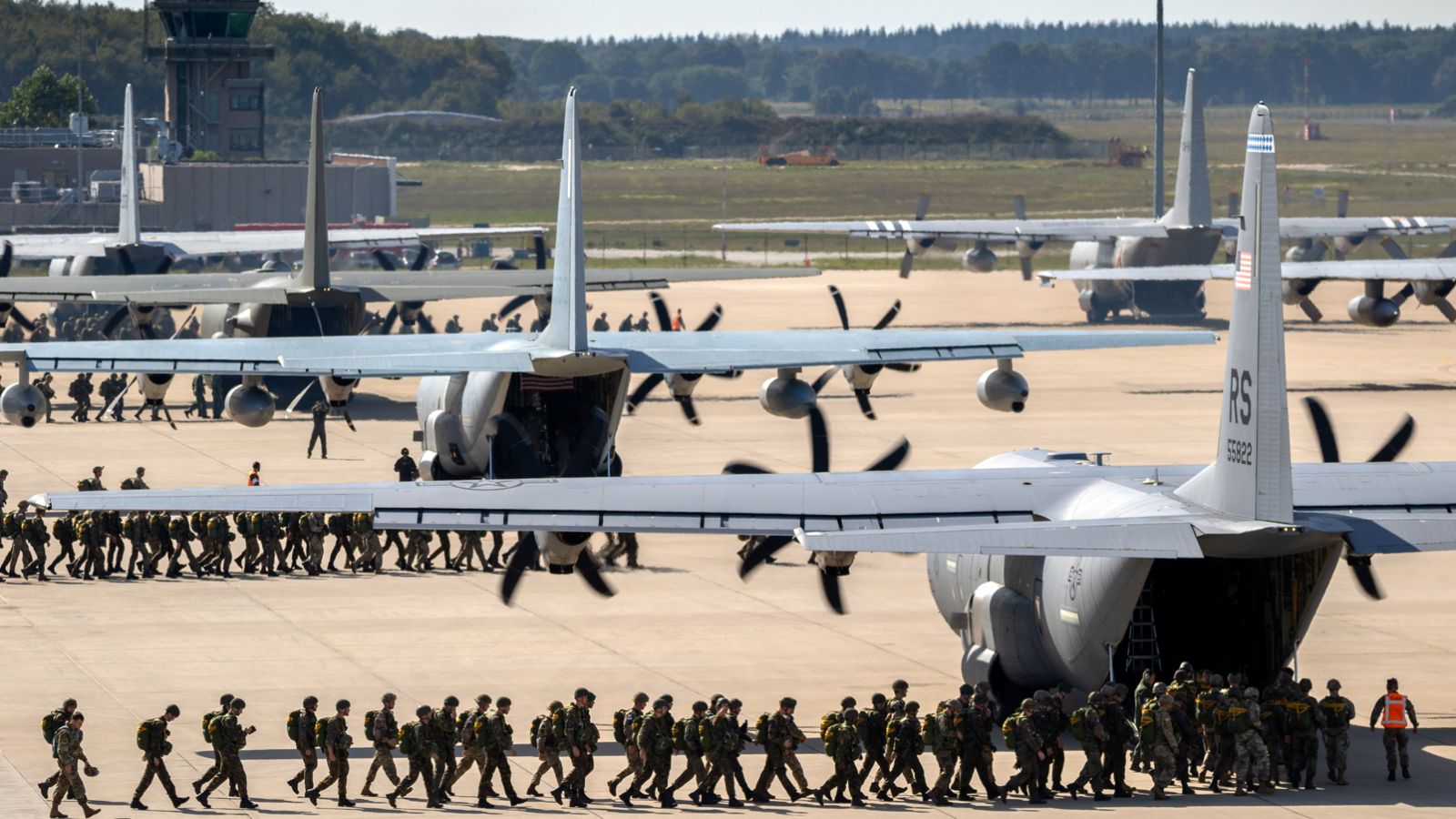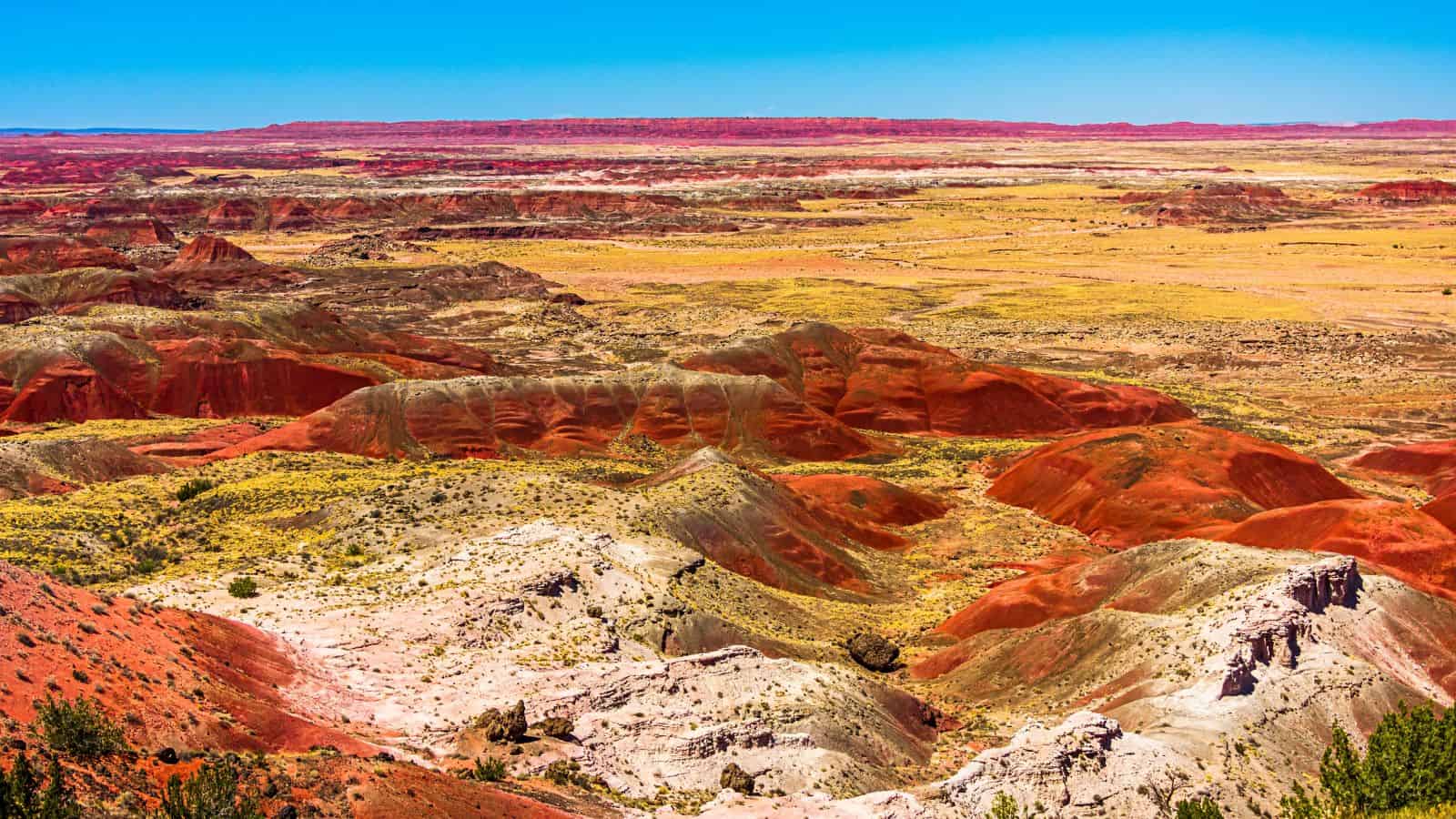The U.S. and Canada are neighbors and allies, sharing close cultural and economic ties. However, the two have vast differences in currency, food, religion, and politics. Here are 17 things the U.S. has that Canada doesn’t.
Presidential System

The U.S. has a presidential system, and Canada has a constitutional monarchy with a Westminster system. The president is the head of state in the U.S., while in Canada, it is King Charles III, with a prime minister running the country. In a 1992 paper, Martha A. Field notes that both systems have judicial supremacy, “but the systems are organized in different ways,” with Canadian provinces having more legislative power than U.S. states.
Major League Sports

The U.S. and Canada both have their major sports, with major league teams in the U.S. in sports like American football (NFL), basketball (NBA), and baseball (MLB). In Canada, there is the National Hockey League and the Canadian Football League. There are differences in sports popularity between the two nations, with hockey, the national winter sport, being immensely popular in Canada.
Larger Population and Economy

The population of the U.S. is almost ten times that of Canada, with the U.S. having a population of 335,893,238 in 2024 compared to Canada’s population of 38,978,596. Investopedia notes the U.S. has the biggest economy in the world, and “the biggest contributor to that GDP is the economy’s service sector.” Canada is the ninth-largest economy, with “a well-developed energy extraction sector” and the “world’s third-largest proven oil reserves.”
NASA and Space Exploration

The U.S. has a history of space exploration, with NASA achieving moon landings in the 20th century and rovers exploring Mars in the 21st century. The Canadian Space Agency was established later than NASA in 1989 but has collaborated with it to contribute Canadarm2 to the International Space Station.
Ivy League Universities

The U.S. is home to the Ivy League, a set of eight private colleges and universities renowned worldwide for their academic excellence and prestige. These universities rank highly on the global rankings, and while Canada is home to its own prestigious universities, like the University of Toronto and the University of British Columbia, they’re not as well known.
Global 500 Companies

American companies are a major presence in the global economy. Walmart is the world’s largest company by revenue, and there are 136 U.S. companies in 2023’s Fortune Global 500. Canada is the eighth country with the most companies in the Global 500, with 18.
World Currency Reserve

The U.S. dollar is the world’s primary reserve currency, with significant implications for international trade and economic stability. In contrast, according to the IMF, the Canadian dollar is the world’s sixth-most-held reserve currency. However, the Canadian dollar is still relatively popular with central banks due to Canada’s legal and political stability.
Hollywood and Global Entertainment

Hollywood has shaped the global film and entertainment industries, inspiring India’s Bollywood and Nigeria’s Nollywood. American movies, television, and music dominate the global industry. Canada has produced critically acclaimed films like Atanarjuat: The Fast Runner, but it hasn’t had the same global influence as Hollywood.
National Parks

The U.S. has 63 national parks, compared to Canada’s 37. American national parks like Yellowstone, the world’s first national park, attract millions of visitors annually. Canada’s national parks, like Wood Buffalo, are less well-known than their American counterparts.
Silicon Valley and Tech Innovation

The U.S. has a global impact on technology with Silicon Valley. Major tech companies like Apple, Google, and Meta have changed the world, projecting American innovation across the globe. Waterloo EDC reports that “the Toronto-Waterloo Corridor is the largest tech cluster in North America outside of Silicon Valley.” Still, Canada hasn’t had the same impact on global technology as the U.S. has.
Political Influence and Global Leadership

The U.S. plays a more significant role on the world stage than Canada. For example, the U.S. is the largest funder of NATO and sends more aid to Ukraine than Canada. The countries are allies, but America has more soft and hard power influence than diplomatic Canada.
Global Military Presence

The U.S. has the largest global military presence by far, with the Chicago Council of Foreign Affairs noting that “as of September 2022, there are 171,736 active-duty military troops across 178 countries, with the most in Japan (53,973), Germany (35,781), and South Korea (25,372).” Canada is also a member of NATO but spends less as a percentage of its GDP on its military and has a more limited international military footprint.
Higher Crime Rates

The U.S. has higher crime rates than Canada, with a higher intentional homicide rate. Canada is a safer country than America and has much stricter gun laws. Mass shootings are much rarer in Canada, which abolished the death penalty in 1976.
Diverse Climate and Geography

The U.S. has more deserts than its northern neighbor, with four compared to Canada’s one. Being further down south, the U.S. has a more diverse climate than Canada, with sub-tropical Florida and Pacific islands. Canada is a colder country on average.
American Fast Food Culture

America’s fast food cuisine, notably McDonald’s, has spread worldwide, with chains on every continent except Antarctica. Canadian food chains like Tim Hortons are widely popular in the country but haven’t had the global reach of their southern counterparts.
Pennies

Business Insider notes that Canada got rid of their pennies in 2013 “because production costs outweighed the value of the coin.” Canadians also use coins for one and two dollars instead of bills, loonies, and toonies.
Middle School

In the U.S., children leave elementary school and enter middle school at 11, and generally leave at 13. In Canada, there is no middle school, where children go from elementary school to high school at 12 and leave at 18.
Up Next:
- 16 Reasons Why You Should Never Buy a Car With Cash
- The 15 Most Dangerous Roads in America to Avoid on Your Trip
- 14 Outdated Car Features From the ‘90s No One Cares About Anymore
